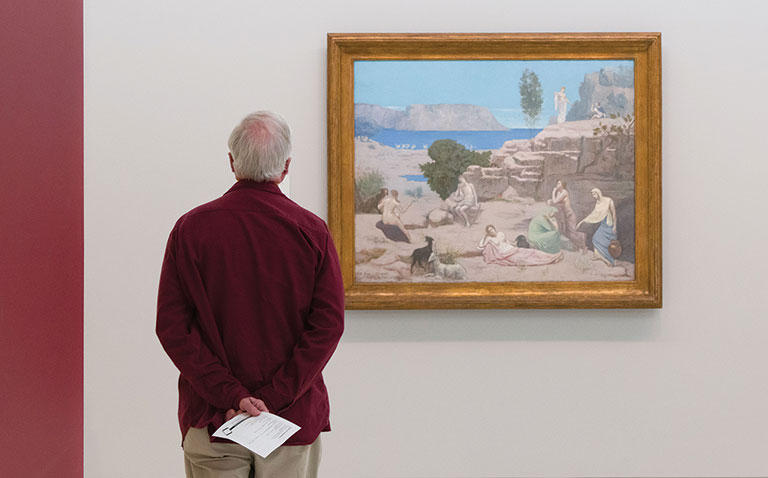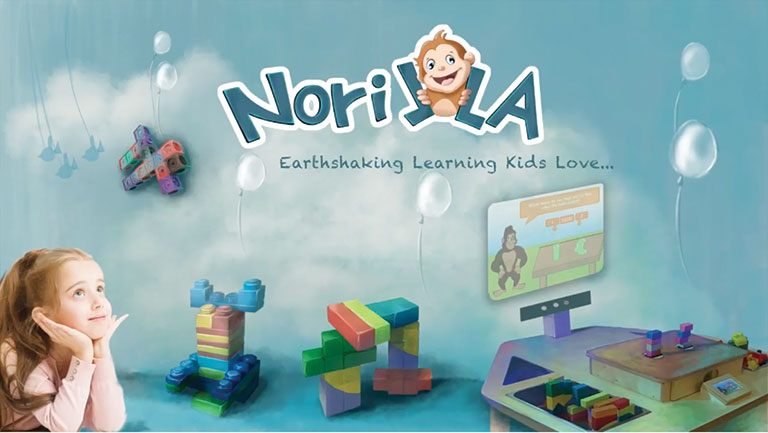
Introducing Warhol TV
The original king of pop culture now has his own streaming platform. Earlier this year, The Andy Warhol Museum launched The Warhol TV, where viewers can access unique museum content for free and rent a growing selection of Warhol’s more than 400 films and over 2,500 videos. The project aims to recontextualize the artist in today’s media landscape. “At The Warhol, we are frequently asked how Andy would have responded to today’s culture of social media and YouTube personalities, where everyone truly does experience their 15 minutes of fame,” Museum Director Patrick Moore says. “Our goal is that The Warhol TV embodies the spirit and vision of Warhol if he were provided with today’s technological resources.” The Warhol TV is available online at stream.warhol.org, as well as via dedicated iPhone, Apple TV, Android, and Roku apps.

Photo: Bryan Conley
Art Mindfulness at 55+
Carnegie Museum of Art is aiming to nurture the mind, body, and soul for visitors over 55 with an initiative known as the Mindful Museum. Participants will enjoy unlimited access to early Wednesday morning programming that includes strolling along “art paths,” meditation stops throughout the museum, drawing, chair yoga, art history classes, social gatherings, and more. The eight-month program, which is running now through December, costs $50 for museum members and $80 for nonmembers.

Photo: Matt Lamanna
“The Changma site is a special place. … When you’re digging, it’s like you’re literally turning back the pages of history, layer by layer uncovering animals and plants that haven’t seen the light of day in roughly 120 million years.”
-Matt Lamanna, Carnegie Museum of Natural History paleontologist, who co-authored a paper in the Journal of Systematics and Evolution on two new fossil birds discovered near China’s Great Wall

Going Dark to Protect Migratory Birds
Carnegie Museum of Natural History is trying to keep migratory birds safe by encouraging Pittsburghers to turn off their lights at night. The museum recently announced its BirdSafe Pittsburgh Spring 2022 campaign, which asks homeowners and businesses in Western Pennsylvania to turn off their lights between midnight and 6 a.m. Doing so will help reduce bird window collisions and disorientation caused by artificial light in the night sky.

AI Exhibits Deepen Learning
Whether playing with water features, robots, or earthquake tables, interactive exhibits have long been featured at Carnegie Science Center. Researchers at Carnegie Mellon University (CMU) recently teamed up with the Science Center to study how to make interactive exhibits even more engaging through artificial intelligence (AI). The university’s Human-Computer Interaction Institute developed new types of interactive exhibits that feature a virtual assistant to guide and interact with visitors. For example, the CMU researchers created an AI-enhanced earthquake table outfitted with a camera, touch screen, large display, and an intelligent agent—NoRilla, a virtual gorilla—that interacts with young participants, taking them through different challenges and helping them make scientific discoveries. Researchers found that the AI-enhanced exhibit not only helped children understand scientific concepts better but also transferred to better building and engineering skills.
Receive more stories in your email
Sign upTags:
Where Art & Science Meet